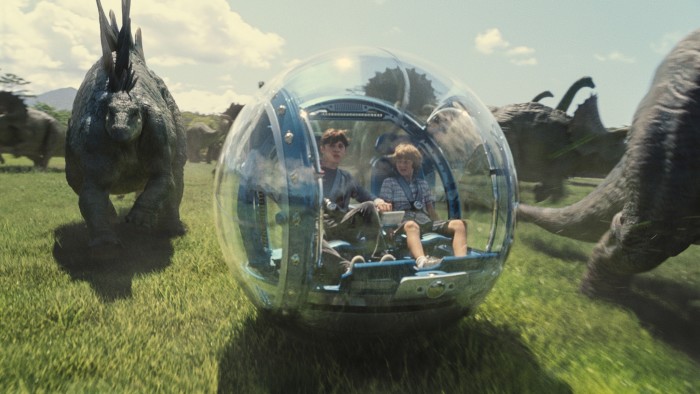US box office feels the force of the blockbuster


Roula Khalaf, Editor of the FT, selects her favourite stories in this weekly newsletter.
In a world of connected devices, smartphones and the availability of any form of media at any time in the palm of your hand, a visit to the cinema sounds like an arcane, outdated experience.
Who in their right mind would leave the comfort of their sofa to sit in a dark room with a group of strangers, watching something that could as easily be viewed on a big-screen television — or, if they were so inclined, a portable device?
Lots of us, it turns out. This year is on track to break records at the US box office in part thanks to the release this week of Star Wars: The Force Awakens, which will turbocharge 2015 takings.
The film is set to shatter records this weekend: sales of pre-release tickets in the US have already surpassed $100m and analysts’ estimates for the opening weekend are as high as $250m. Vue, the cinema group, has sold 1m advance tickets globally and 458,000 in the UK, having opened 200 additional screens for the film’s release on Thursday.
The seventh Star Wars film could propel total US box office returns past $11bn for the first time and lift global takings above $40bn, according to Paul Dergarabedian, a senior analyst with Rentrak, which manages box office performance.
The Force Awakens is likely to be the biggest in a string of blockbusters released this year, with Jurassic World, Furious 7, Minions and Avengers: Age of Ultron each taking more than $1bn in global box-office receipts,
Whether 2015 is a one-off, or a sign of a renaissance in moviegoing is another matter. In the US, cinema admissions plateaued several years ago and have been flat for the past decade, with peaks in occasional years driven by one-off films with broad appeal. For example, in 2014, there were 1.27bn tickets sold in the US, a decline of 6 per cent on the previous year, according to the Motion Picture Association of America.
Revenue growth for Hollywood studios has come from ticket price inflation, innovations such as 3D, which commands premium prices, and emerging markets that have added new screens at a rapid rate.
China in particular has become Hollywood’s biggest growth driver. Even without The Force Awakens, which will not open there until early January, the country will score a record year in 2015 with total box office revenues projected to be as much as 30 per cent up on the 2014 total of $4.8bn. It is adding screens at such a clip that Rich Gelfond, chief executive of Imax, the big screen company, expects it to eclipse the US as the world’s largest cinema market by 2017.

Executives who run Hollywood’s top studios know they need to cater for Chinese audiences and release films at optimum times for that market. The North American release calendar is still wedded to US holidays, with the biggest films launched in the summer for maximum impact. As the Chinese market continues to grow, that calendar is likely to change.
Hollywood will watch the performance of The Force Awakens in the US and elsewhere with keen interest. The movie, and five other new Star Wars films commissioned by Walt Disney, which bought Lucasfilm in 2012 for $4bn, should generate billions of dollars for the company. But much like 25, the recent album from Adele, which broke sales records in its first weeks on release, T he Force Awakens is an outlier.

In the music industry, album sales are falling year on year: 25, and its predecessor, 21, are exceptions because Adele attracts fans who are equally passionate, whether they are children or their grandparents.
A similar dynamic is at work with The Force Awakens. The film’s appeal stretches from adults like the 30- and 40-somethings who grew up with the original films (such as the author of this column) to the parents who took them in the 1970s and 1980s — to their own children.
If those 30- and 40-something parents want to relive their childhoods by watching The Force Awakens and its sequels, they have an interest in ensuring their offspring share their enthusiasm for the series. They might even create some new acolytes of that century-old habit of sharing a viewing experience with lots of other people in a dark auditorium.
Comments